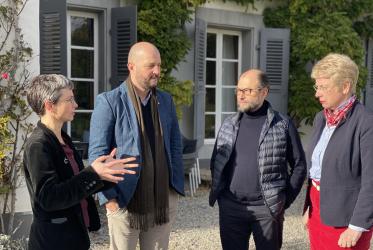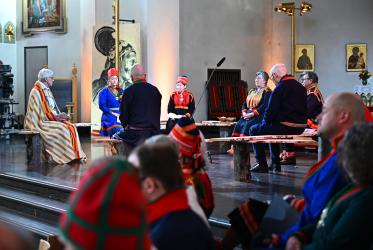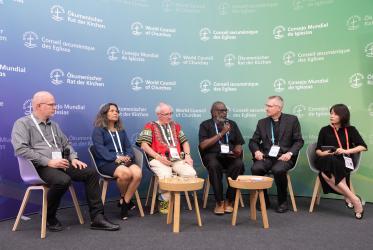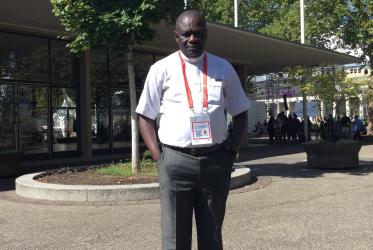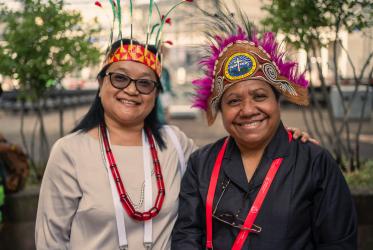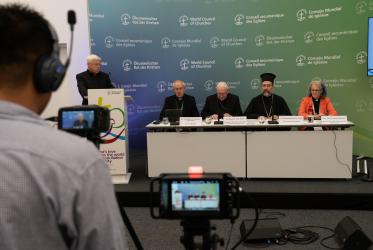Displaying 121 - 140 of 1470
Migrants in Argentina find listening ears and open hearts
04 November 2022
Church of Sweden apologizes to Sámi people, this time in Sápmi
27 October 2022
WCC 11th Assembly: safe and welcoming environment for all
19 September 2022
Assembly workshop looked toward ending AIDS epidemic by 2030
19 September 2022
Förderung der Menschenwürde durch Kunst
07 September 2022
Indigene Frauen kämpfen um Identität in Asien und darüber hinaus
07 September 2022
Promoting human dignity through art
06 September 2022
Indigenous women struggle for identity in Asia and beyond
05 September 2022
Frauen mit Behinderungen wollen Teil der Kirche sein
01 September 2022
Women with disabilities want to belong in churches
31 August 2022
